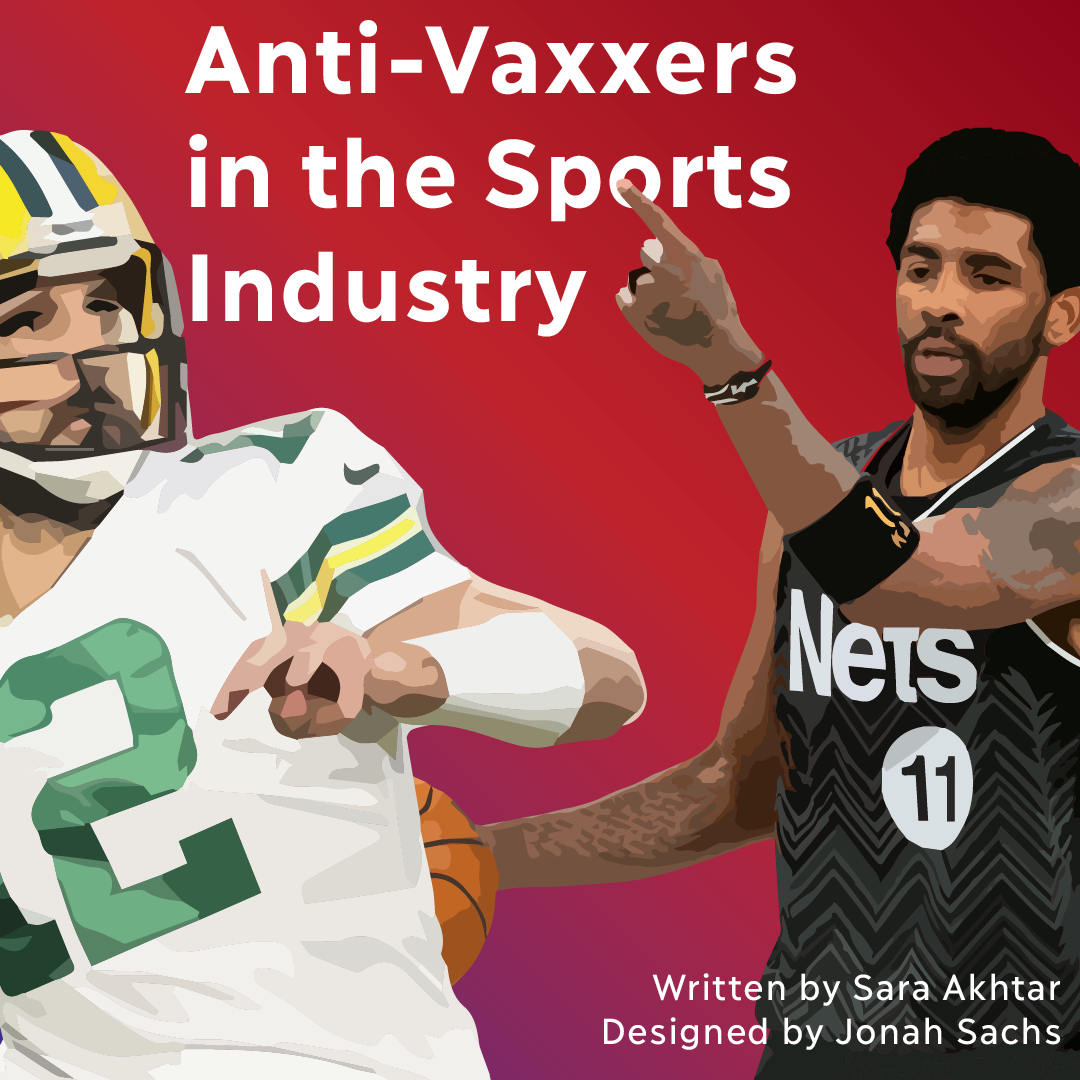
“Now, Aaron, you’re not vaccinated, but who the hell cares!” Cecily Strong exclaims in a hearty impression of Fox News correspondent Jeanine Pirro. “It’s your body, your choice!”
“Yeah!” Pete Davidson says, impersonating Green Bay Packers quarterback Aaron Rodgers in a blue beanie and fake beard, “It’s my body, and my COVID.”
Opening the segment with the subject that has pervaded many conversations over the past year, this skit on “Saturday Night Live” sought to address the ongoing COVID-19 vaccination controversy in the United States. Featuring several anti-vaxxers, the skit scrutinized recent statements made by three-time NFL MVP Aaron Rodgers, drawing particular attention to the debate regarding professional athletes and their decisions to forego immunization against the coronavirus.
This particular skit on SNL stemmed from the sequence of events in which Rodgers tested positive for COVID-19 during the height of the 2021 NFL on-season, despite his remarks to reporters in August that he was, in fact, “immunized.” In attempts to quell public ridicule in the aftermath of contracting the virus, the star made a virtual appearance on “The Pat McAfee Show,” to explain his stance on the topic: “I believe strongly in bodily autonomy and the ability to make choices for your body, not to have to acquiesce to some woke culture or crazed group of individuals who say you have to do something,” he said. “Health is not a one-size-fits-all for everybody, and for me it involved a lot of study in the offseason.”
While exercising one’s medical autonomy is something each individual deserves the right to do, it is important to recognize that professional athletes such as Rodgers possess massive followings, and the statements Rodgers made contribute to misconceptions that can and have already begun to decrease the health and wellbeing of modern society. The “crazed group of individuals” he mentioned includes professionals that have repeatedly tested the efficacy of the mRNA vaccines, and billions whose lives have been saved upon receiving it.
Rodgers went on to explain that an allergy to an ingredient in the vaccine prevented him from pursuing complete immunization, claiming that he has been partaking in an alternative homeopathic treatment that is believed to increase one’s antibodies, despite expert reports that the treatment does no such thing. Rodgers ignored these facts, and chose to follow his own protocol of forgoing the vaccine altogether, without evidence of allergic reactions at the onset.
Other sports stars such as the NBA’s Kyrie Irving have also contributed to mass hysteria regarding receiving the COVID-19 vaccination. The Nets player has publicly expressed his opposition, a decision that could result in him losing more than $17 million, or roughly half of his annual salary with the Nets. On Instagram Live, Irving said, “I am going to just continue to stay in shape, be ready to play, be ready to rock out with my teammates and just be part of this whole thing. This is not a political thing; this is not about the NBA, not about any organization. This is about my life and what I am choosing to do.”
Unlike Rodgers, Irving’s conspiracy theorist morale comes as a bit of a shock to those who have followed his career outside of basketball over the past several years. Despite being a suspected “flat-earther”, he has been an avid proponent of several social justice movements, opposing the Dakota Access Pipeline due to his Native American heritage and releasing a documentary about Breonna Taylor after her untimely death in 2020. He has not budged in his decision to remain unvaccinated, though, despite the wide-ranging ramifications to his public reputation, as well as to his team and their in-season dynamics.
Individual athletes cannot be the only ones critiqued for their stances on mass vaccination. Perhaps an even more grave controversy was that concerning the 2021 Tokyo Olympics, and the lack of mandates enforced by The International Olympic Committee. The absence of regulation requiring vaccination resulted in only 80 percent of the athletes arriving with vaccinations, with about 100 U.S Olympic athletes without proof of inoculation. Several outbreaks occurred during the array of sporting events, and it was estimated that nearly 300 athletes and affiliates from around the world tested positive for the coronavirus during their time in Tokyo. While The International Olympic Committee has appallingly not yet announced a vaccine requirement, the United States Olympic & Paralympic Committee announced that all athletes and team staff members who intend to use the organization’s training facilities at the Winter Beijing Games in 2022 would need to be fully vaccinated by Nov. 1.
The mandate put into place by the United States Olympic Committee is an important step to ensure the wellbeing of citizens from all over the world, but is far from the level of safety that should be regulated across all national sports leagues and those representing them. While exercising medical autonomy is one’s prerogative, following the advice of medical health professionals and dismissing several athletes’ spread of misinformation will result in the overall betterment in creating a safe and productive future for all.